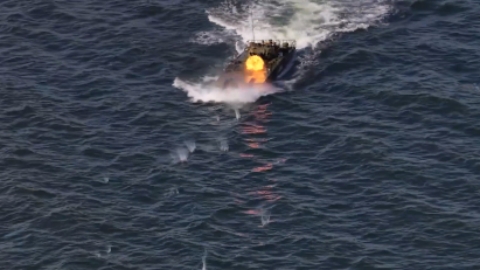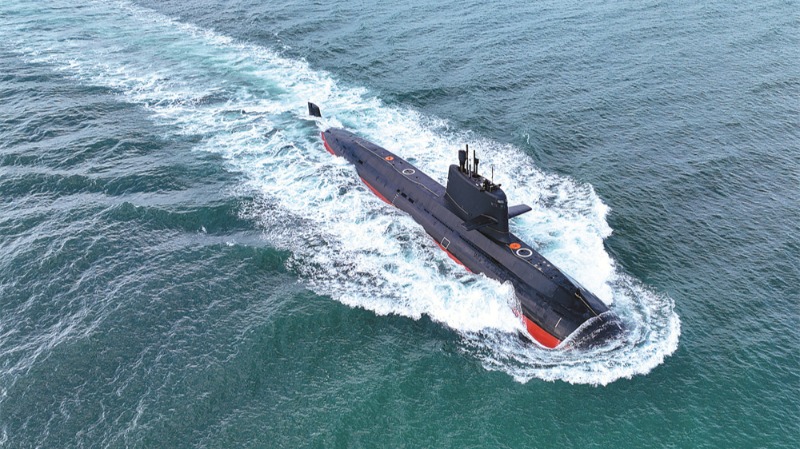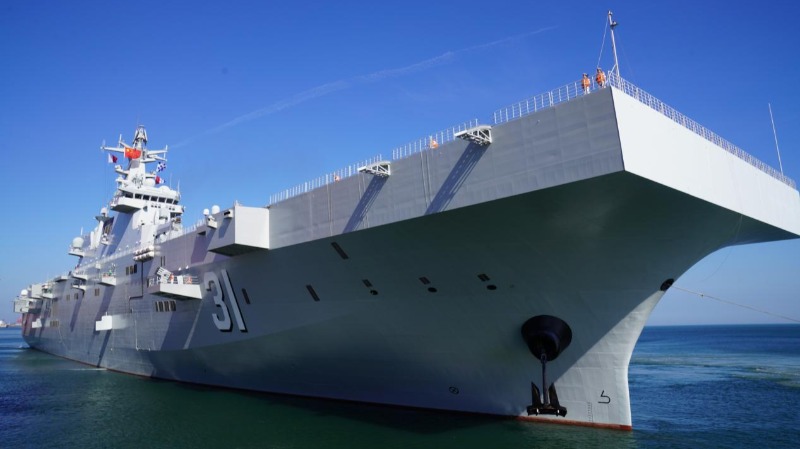By Zong Haiping
The provisions on the use of weapons as stipulated by China’s Coast Guard Law have drawn the attention of some countries. In fact, these provisions are not only consistent with the international law but also similar to the coast guard laws in other countries, being an important guarantee for China’s Coast Guard to protect national rights and perform its duties. The deliberate misinterpretation of this law reveals certain countries’ malicious intent of stirring up trouble for China.
Some accuse China’s Coast Guard Law of violating the international law prohibiting the use of force. According to the UN Charter, there are only two scenarios in which a state can use force legally – either with the authorization of the UN or to exercise the right to self-defence. But at the same time, this rule applies only to international relations, not to the exercise of a state’s internal law enforcement power; otherwise, the prohibition would contradict the basic principle of international law of “no interfering in domestic affairs”.
On the other hand, in peacetime, the international rule on weapon use may refer to the application of international humanitarian law, such as the principle of proportionality. This has already been reflected in China’s Coast Guard Law, which states that weapons shall be used when it’s necessary to stop “illegal violation or the imminent danger of illegal violation”, and demands “the employees of a coast guard agency shall, based on the nature, degree, and imminence of the danger of an illegal or criminal act…, reasonably judge the necessary limits of the use of weapons and exercise best effort to avoid or reduce unnecessary casualties and property losses.” As a matter of fact, the China Coast Guard officers have always exercised restraint when enforcing the law on the sea in the past, and will not take enforcing measures beyond reason upon foreign fishing boats or personnel in the future, especially as the Coast Guard Law has come into effect.
There are people claiming that should China’s Coast Guard order a foreign military vessel or foreign government vessel used for a non-commercial purpose to leave immediately or take other forcible measures against them, that would violate the rule of the United Nations Convention on the Law of the Sea (UNCLOS) about the immunity enjoyed by such vessels. Well, this is downright garbling. As Article 30 of the UNCLOS stipulates, “If any warship does not comply with the laws and regulations of the coastal State concerning passage through the territorial sea…, the coastal State may require it to leave the territorial sea immediately.” The provisions of China’s Coast Guard Law are in line with the UN convention.
A review of the coast guard laws of various countries indicates that most countries only authorize their coast guard agency to use a weapon when enforcing the law without specifying the circumstances for the use. The ROK’s law stipulates that the Coast Guard chief is responsible for the introduction and management of the weapons and ordnance needed for carrying out missions; the Malaysia’s allows its officers to carry weapons when performing duties; and the Australia’s allows the Coast Guard ships, aircraft and personnel to be armed, but it is up to the parliament to decide when and where the weapons and equipment shall be used and to what extent.
Some countries have specified the situations in which Coast Guard forces can use weapons. The US permits coast guard officers and investigators to carry weapons when discharging their duties and the vessels to fire at suspicious ships that refuse to leave even after the firing of warning shots. The Vietnam prescribes the scenarios where weapons, explosives and instruments may be used, including arm-firing if life safety is under grave threat.
China’s Coast Guard Law includes similar prescriptions, including rigorous and detailed descriptions of situations where weapons may be used, so as to avoid the abuse of weapons – this is far more scientific and rational than some countries’ law that allows the use of a weapon without elaborating on the situation for weapon use. The Chinese law also prescribes international cooperation and the supervision of law enforcement, which reflects China’s willingness to work with relevant countries to jointly preserve maritime security and implement maritime governance. Those who accuse China’s Coast Guard Law of setting loose conditions for the use of force obviously have an ax to grind.
(The author Zong Haiping is an observer on international issues.)


















